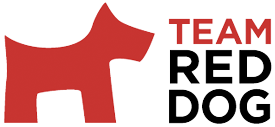
Job Skills to Keep Up With in 2019
The weather may be cold, but you can still keep your skills “hot” in this fast-paced, tech-savvy job market that we’re in.
As a Seattle-area staffing company with over 17 years’ experience, staying up to speed on the latest skill trends is second nature. Read on to find out what professional skills will make you stand out in 2019. Here’s where to focus:
Cultivate a love for learning:
The skills of today are not the skills of tomorrow. Businesses are adopting new technologies more quickly than ever and expect employees to keep up. The World Economic Forum estimates that by 2022 as many as 54% of the workforce will require significant reskilling and upskilling. Those who take a proactive approach to keeping their skills fresh are going to stay ahead.
Not only that, but a track record of continuous learning is a solid demonstration of flexibility and adaptability in the workplace.
Get comfortable with analytics:
There has never been more data at our fingertips than now, but that’s not useful without the expertise to manipulate the data into something meaningful. Business decisions are becoming more data driven, whether it’s keeping track of customer engagements to better understand their behavior or identifying cost savings and efficiencies.
Having the ability to read and effectively interpret data can be a valuable area to supplement your skills. This is especially true for roles that have traditionally been more creative, but now need to be backed up by data like marketing for example. This could be a great time to deepen your skills in Microsoft Excel, Power BI, or Tableau.
Stay fluent in common digital technology:
A solid foundation of digital skills is now a necessity that can sometimes be underestimated. Being able to successfully find information on Google seems old hat now, but it is a skill. We just constantly hone it by looking up random information. White collar jobs have traditionally needed a stronger foundation of digital skills, but even blue-collar jobs are increasingly demanding a certain level of technological fluency.
It’s important to be aware of these taken-for-granted digital proficiencies such as typing, internet research, professional email etiquette, Office 365, and basic computer literacy like maintaining file integrity or avoiding malicious links and emails. Demonstrating a lack of basic digital knowledge in an interview or testing setting can undermine others’ confidence in your ability to get the job done. The threshold for these skills will only grow in the future.
Develop those soft skills:
There are some areas where the human element just can’t be replaced. If you’ve ever groaned audibly at a seemingly never-ending automated phone tree while trying to speak to a representative, this should be no surprise. Roles with distinctly ‘human’ skillsets are expected to grow in 2019 and beyond. Soft skills are those uniquely human traits like creativity, critical thinking, empathy, and persuasion. While hard skills, like coding or programming, can be taught and measured, soft skills develop more naturally over time and are harder to quantify. Technology may be carrying out most of the heavy-lifting, but it’s the human teams behind the machinery that are working together to share their ideas and critiques to make meaningful innovation happen.
Effective communication and organization will always be valuable across nearly all disciplines, but others can be more field-specific. Think about the essential soft skills of your current role then look ahead to a role you want. Assess yourself and see where you fall, then begin fostering those skills. Rather than taking an online course, developing soft skills can be more about cultivating certain habits and maybe shifting your mindset.
Invest in skills related to problem solving and technology:
Ensure the skills you are learning have some complexity to them. Routine-based and manual rote tasks are those most in danger of becoming obsolete. There’s not much demand for a telephone operator or typist these days as automation tools have replaced these skills. Take a close look at your skills – and know that some of them will be replaced by a technical solution or artificial intelligence in the future.
At their core, many tech hard skills actually come down to problem-solving. Troubleshooting has become synonymous with computers, but it is quite literally a problem-solving process that can be applied to much more than just computer issues. It’s not surprising that skills combining technology and problem-solving like coding, programming, and analytics are in high demand. Other hot technology areas like artificial intelligence, mobile application development, cloud computing, and big data will continue to grow as well. Of course, problem solving goes beyond technology – it’s essentially what many of us do each day on the job. Establishing techniques, processes, and tools for the best way to approach issues in your field can also set you apart.
Ready to put your skills to the test? Our Bellevue-based recruitment agency can help you find the right fit for your expertise.
